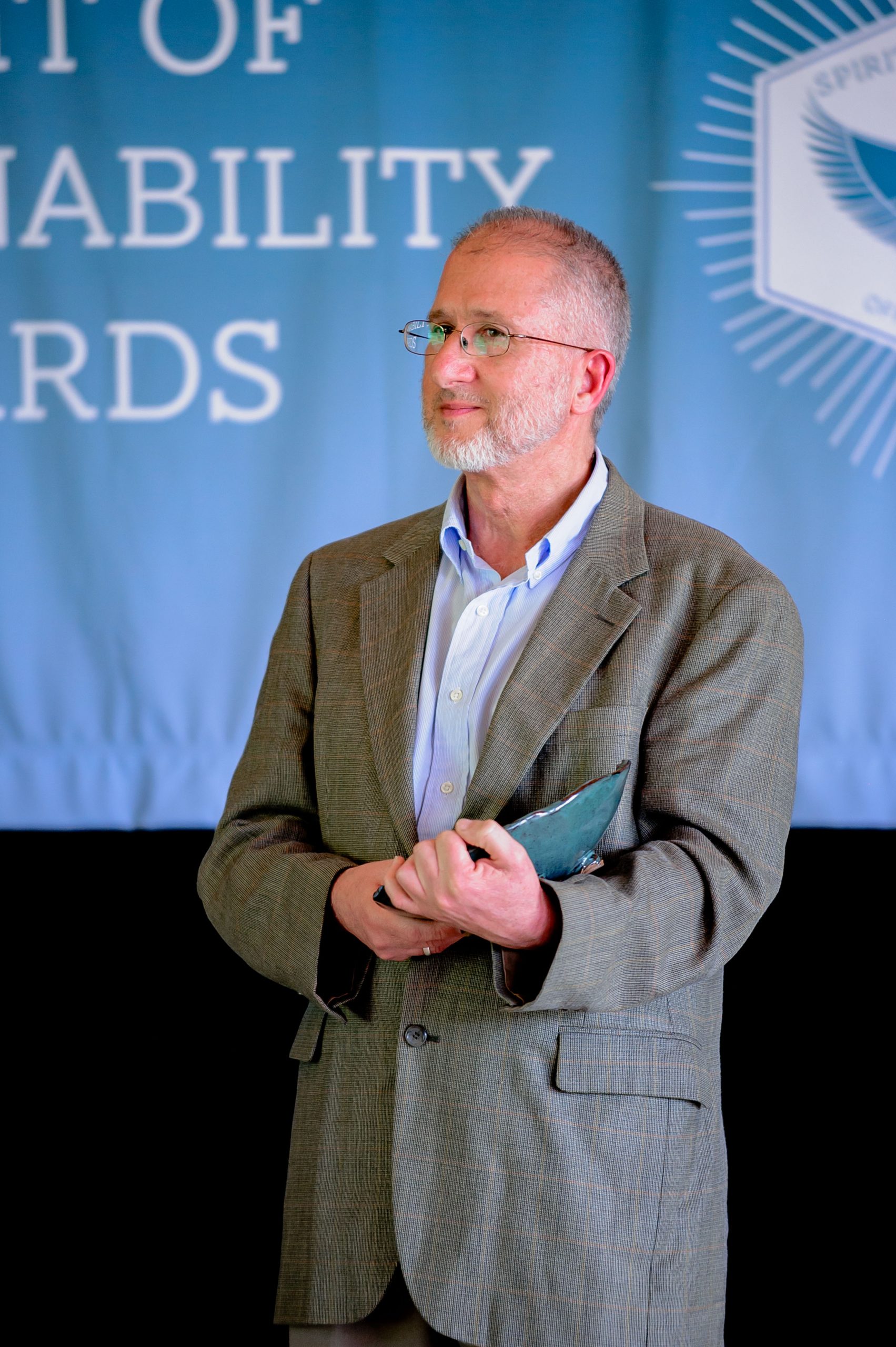Follow Us
Mark Dougherty – Faculty
Auburn University, Auburn, AL

Professor Doughtery with his award during the ceremony.
Mark Dougherty is a Professor of Biosystems Engineering in the College of Agriculture and a professional engineer.
Biosystems engineering integrates engineering science and design with applied biological and environmental sciences. It is an evolution of engineering disciplines applied to living systems.
As a teacher and scholar Mark is dedicated to leading his students and colleagues to embrace the wholeness of sustainability to improve quality of life.
Mark’s teaching and research focus on making engineering responsive to sustainable design. Among other classes, he teaches a sustainable site design and restoration class to reduce stormwater and other environmental impacts of development. A class on Water for Sustainable Ecosystems, Economies, and Communities has students collaborating to create innovative designs for managing stormwater using nature as a guide.
He has supervised many student projects, helping them realize sustainability goals, including the AU Garden of Memory pond restoration and wetland design, a portable oyster nursery, and a sustainable tilapia pond design for rural communities in Honduras, among others.
Mark is a founding member of the AU Green Infrastructure Team, a transdisciplinary working group testing the effectiveness of landscape materials and substrates to achieve sustainable stormwater management. Mark collaborates with colleagues in landscape architecture, horticulture, and building science to produce the best available science on using nature’s approach for stormwater management.
The environmental, economic and social impact of Mark’s teaching and research show up in a water diversion and gravity fed irrigation system in Bolivia, the sustainable reuse of on-site wastewater for irrigation in the Alabama Black Belt, and water reclamation for car washing in Atlanta. All of these projects have delivered strong sustainable gains.
Mark’s extensive knowledge, his skill at communicating sustainability, and his ability to teach the complexities of sustainable engineering site design, set a standard and earn him the praise of students, alumni, and colleagues. He is an agent of social change who lives what he teaches and has a significant impact on the values and lifestyles of his students, influencing how the next generation of engineering leaders will act to improve quality of life.
Mark’s work in sustainability is a remarkable example of the difference one person can make. He has spent his entire academic and professional life engaged in sustainability teaching, research, and project development. His efforts and those of his students are making a difference in communities around the world.




